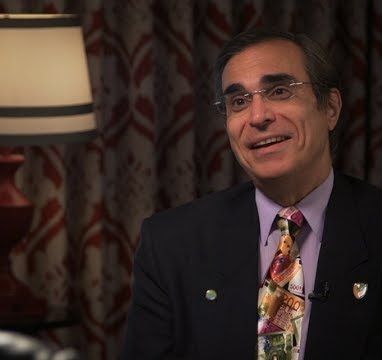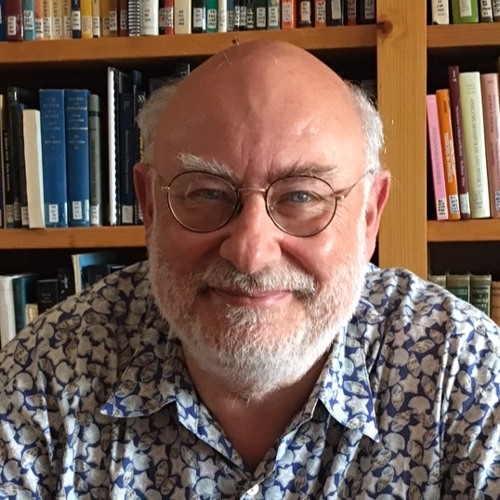Aug 25, 2017
Can Science Reverse Aging?
Posted by Dan Kummer in categories: engineering, life extension, policy, robotics/AI, science, singularity
Futurist José Cordeiro talks longevity, AI, and the humanitarian crisis in Venezuela.
—————

Futurist José Cordeiro talks longevity, AI, and the humanitarian crisis in Venezuela.
—————
You can go to school for space mining.
GOLDEN, Colo. — The Colorado School of Mines plans to launch a new graduate program that could help people inhabit other planets some day.
The school is working to launch the space resources graduate program that will teach students how to explore, extract and use resources not only on Earth but also on the moon, Mars, asteroids and more.
Continue reading “Colorado School of Mines plans to launch space mining graduate program” »
Set on Sir Richard Branson’s Necker Island, the third annual Blockchain Summit, hosted by BitFury, a leading full service Blockchain company, and Bill Tai, a venture investor and technologist, has come to a close. This event was an intimate, if perfectly balanced, gathering of technology, policy, investment and business leaders from around the world and across sectors. Topics ranged from the public policy implications of what is being heralded as a foundational technology, to new emerging business models that can ride on the very rails that enabled the global bonanza of digital currencies like Bitcoin. A key question that underpinned the Summit is if Blockchain could not have existed without the Internet, what could not exist without Blockchain?
Blockchain technology can undoubtedly change industries, especially those that labor under often byzantine, opaque and friction-laden business models. While many of the early pioneers are focusing on finance and insurance, the opportunities for this radical technology may very well reorder society as we know it. The remarkable case of Estonia, for example, shows a country reinventing itself into a future-proof digital state, where citizen services are rendered nearly instantaneously and to people all over the world. Similarly, promising work inspired by the famed Peruvian economist, Hernando de Soto, on improving land registries is being carried out by BitFury in a host of countries. With land and property being the two largest assets people will own — and the principal vehicle of value creation and wealth transfer — an unalterable, secure and transparent registration process should give the world comfort and elected leaders longevity.
What drives this unique technology is the power of distributed singularity, from which Blockchain’s identity pioneers like Dr. Mariana Dahan, who launched the World Identity Network on Necker Island, and Vinny Lingham of Civic, draw their inspiration. Blockchain operates on the basis of a distributed ledger (or database) system, inexorably marching forward recording and time-stamping transactions or records. While some may herald Bitcoin as Blockchain’s “killer app,” it is easy to maintain that the killer app is not the digital currencies that ride on Blockchain’s rails, but rather the rail system altogether. Two trains can ride on rails. But a high-speed maglev train is a decidedly faster mode of transport than a steam engine. Just as the maglev makes little or no contact with the rails enabling low-friction transport, the Blockchain can greatly reduce the friction in how the world transfers and records value.
Continue reading “Blockchain and the Power of Singularity” »
My HuffPost article from yesterday on military, #transhumanism and science was on the frontpage of Reddit today with nearly 12,000 upvotes & This was a policy article of my libertarian CA governor campaign. I’m happy to see it do so well.

There is a radio edit (about one half hour) and an unabridged version (about one hour long).
Rapid developments in brain-machine interfacing and neuroprosthetics are revolutionizing the way we treat paralyzed people, but the same technologies could eventually be put to more generalized use—a development that’ll turn many of us into veritable cyborgs. Before we get to that point, however, we’ll need to make sure these neural devices are safe, secure, and as hacker-proof as possible.
In anticipation of our cyborg future, researchers from the Wyss Center for Bio and Neuroengineering in Geneva Switzerland have published a new Policy Forum paper in Science titled, “Help, hope, and hype: Ethical dimensions of neuroprosthetics.” The intent of the authors is to raise awareness of this new breed of neurotechnologies, and the various ways they can be abused. Importantly, the researchers come up with some ways to mitigate potential problems before they arise.
“A report outlining how blockchain technology will usher in a new era of the internet has been published by the World Economic Forum at its 11th Annual Meeting of the New Champions, taking place on 27–29 June in Dalian, People’s Republic of China.”
Tag: blockchain
 One of the missions of Lifeboat Foundation has always been to contemplate the protection of our fragile Spaceship-Earth and to contemplate a day when we may need to migrate from this tiny stage. Yesterday, that day may have been moved a lot closer. But I am getting ahead of myself.
One of the missions of Lifeboat Foundation has always been to contemplate the protection of our fragile Spaceship-Earth and to contemplate a day when we may need to migrate from this tiny stage. Yesterday, that day may have been moved a lot closer. But I am getting ahead of myself.
Yesterday, I had a fantasy. One that I passionately hoped would become reality. Minutes before Trump announced the withdrawal of the United States from the Paris Climate Accord, I began to daydream…
No such luck! The USA has lost its Mojo—at least while it is led by a man with no grasp of science, history, morals or a global perspective. As Trump begun to speak, I was sucked into a cruel nightmare. But this nightmare is reality. It’s the reality of a buffoon representing you and me in our nation’s highest office.
Question: Time for a thought experiment. Can you guess the answer?…
Continue reading “Reaction: Trump Decision to Withdraw from Paris Accord” »
On a geopolitical level, science is also a crucial agent of soft power between nations. Going back decades, scientific collaborations have tempered tensions between Russia and its rival nations, and allowed cooler heads to prevail. In 1975, astronaut Thomas Stafford and cosmonaut Alexey Leonov shook hands in space as part of the Apollo-Soyuz Test Project, which reflected the policy of détente, or easing of strained relations, between the US and the USSR. The International Space Station (ISS), the crown jewel of science partnerships, is directly descended from this symbolic gesture.
I took a five-day tour of Russia’s leading scientific research centers. This is what I saw.
They call them the “golden brains.” Perched 22 storeys high, they engulf the top floors of the Russian Academy of Sciences (RAS) headquarters in southwest Moscow. Somehow both geometric and wildly rampageous, the copper and aluminum sculptures look like the kind of long-lost technologies that protagonists stumble across on deserted alien worlds in Mass Effect.
Continue reading “In the Midst of Global Turmoil, Russia’s Science Community Reboots” »
Lifeboat Editorial
 Lydia Begag is a high school junior at Advanced Math and Science Academy in Massachusetts. She got our attention when she published an editorial critical of the school’s uniform policy. With eloquence and articulation, she laid out a brilliant and persuasive argument that the policy was anything but uniform. It was ambiguous, arbitrary and discriminatory.
Lydia Begag is a high school junior at Advanced Math and Science Academy in Massachusetts. She got our attention when she published an editorial critical of the school’s uniform policy. With eloquence and articulation, she laid out a brilliant and persuasive argument that the policy was anything but uniform. It was ambiguous, arbitrary and discriminatory.
I’m with Her
Ideas Regarding Sex Equality
—Forget the Rest
Political and social turmoil are everywhere we turn, especially in the early months of 2017. Lunch conversations, small talk at work, and, of course, the media we consume have all become related to a singular topic: the United States government and its workings. Emotionally, I want to curl up in a ball and block out the political nonsense being spewed left and right until the day I die (pun very much intended)—but I feel intellectually obliged to confront the controversy.
